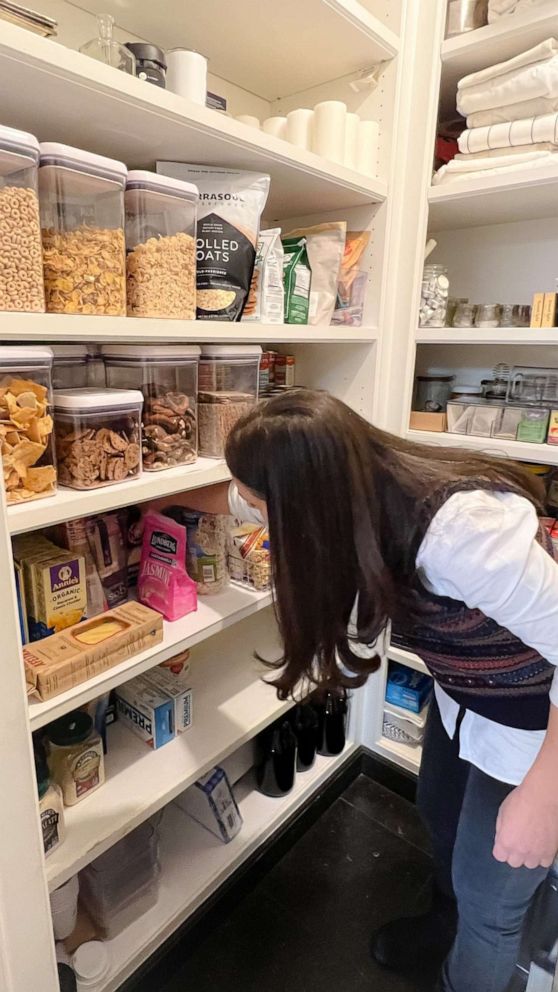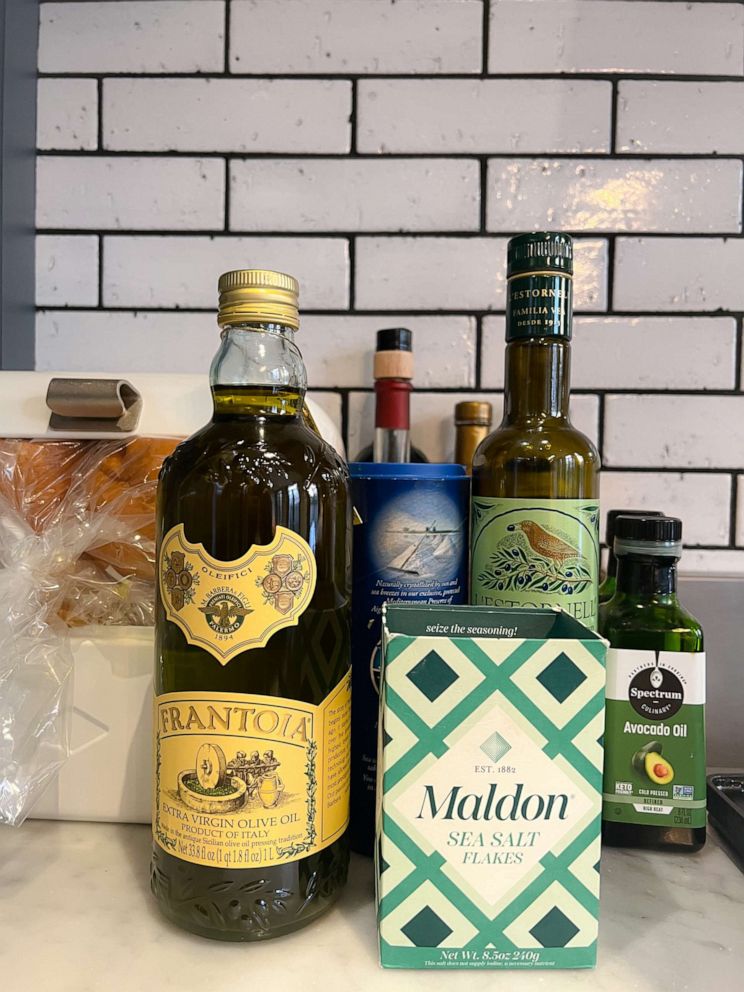Give your pantry a refresh with these clean-out and re-stock tips
Allison Cayne of Haven's Kitchen shares expert tips.
The start of fall and a new season calls for a kitchen pantry refresh.
Whether it's spices that have lost their luster or a suspiciously half-used bottle of oil, a clean sweep of your kitchen is a great way to get ready for a tasty year ahead.
Alison Cayne, founder and CEO of Haven's Kitchen, walked "GMA" Food through some top tips to help home cooks transform cupboard chaos into clean, organized cabinets you'll actually make the most of.

To borrow an old chef's phrase, "The state of your cutting board is the state of your kitchen," Cayne said. "The state of your pantry is the state of your mind -- and if you can keep it organized and know what you have and need, that is definitely a metaphor for a good kitchen."
"I think everyone should make a clean sweep, especially now," said the cookbook author and founder of a line of ready-made fresh sauce pouches.
How to refresh your pantry for a new season
Check out her ideas below and how to implement them in your kitchen.
Start with spices
"Get it out of whatever you buy it in, and immediately put it into a sealable jar," she noted.
When you remove it from the bag, if buying in bulk, this helps keep spices fresh -- making organizing tools like glass containers or spice jars with tight-fitting lids essential.
"Don't buy too much at a time, because you're never going to use like three pounds of oregano," Cayne added. And using a label maker "keeps you knowing how much you have and how, when you need to refill."
"Spices and herbs have a shelf life. You can extend it by keeping them in glass, but for the most part, when they start to to lose their color that means they've lost some of their nutrients and are just flakes of nothing."
The basic essentials everyone should have are just that -- a small number of items used at least once daily.

"As long as you kind of map out what you're going to be making, you don't need a ton of stuff that you're not going to use," she said.
"Herbs are worth taking out of the plastic bag, rolling up in a paper towel, and in a fresh bag and they'll last at least a week," Cayne said. "Fresh herbs are packed with nutrients, they make everything prettier and can make you feel fancy. Flat leaf parsley, just put it on everything and you look like a rock star."
Snacks, cereal, dry goods
Ah the pantry -- where crumbs go to sit in the bottom of a cereal bag for days or weeks at a time.
To alleviate the issue, Cayne suggests "similar to the spices, everything that comes in the house, I immediately open I put in a sealed container," everything from crackers to dried fruit.
When it comes to go-to fresh counter items, Cayne said she always recommends having "garlic, onion, lemons and limes" for everyday cooking. "I always zest them, too, to get the most out of the fruit."
"I always have table salt and Maldon flakey salt. I always have mustard seeds -- they're really fun and easy and a very underappreciated spice," she said. "I use a lot of cumin, turmeric, I'm a huge sesame seed person -- get those into a sealed container, too, because they will go bad, but you can keep them in the fridge."
She also recommends having on hand: honey, apple cider vinegar or sherry vinegar, Dijon mustard, kewpie mayonnaise and a hunk of parmesan cheese.
Fridge vs. pantry
"Unopened tahini, unopened nuts go in the pantry," she recommended. "But the minute that we open those -- and I'm talking seeds and again nuts -- it goes in the fridge. I keep flour in the freezer to keep it fresh longer."
Oils
"Have two oils -- one super-refined oil for cooking and frying that can handle high heat, and, second, a really nice olive oil to use to dress salads and cook," Cayne said.
Storage for oils can vary, but as a rule of thumb, she said "anything that's very viscous you really should be keeping in the fridge. The minute it's open it starts oxidizing, it's going bad."
Keeping oils too close to a hot cooking surface "will mess them up," she added.
While it's hard to give an exact shelf life, Cayne said you can tell by an oil's smell and color, adding that "the thicker and the more color it has, the much shorter the shelf life will be. And if you don't keep it in the fridge you really should use it within a month of opening, period."
An earlier version of this story was originally published Jan. 10, 2022.





